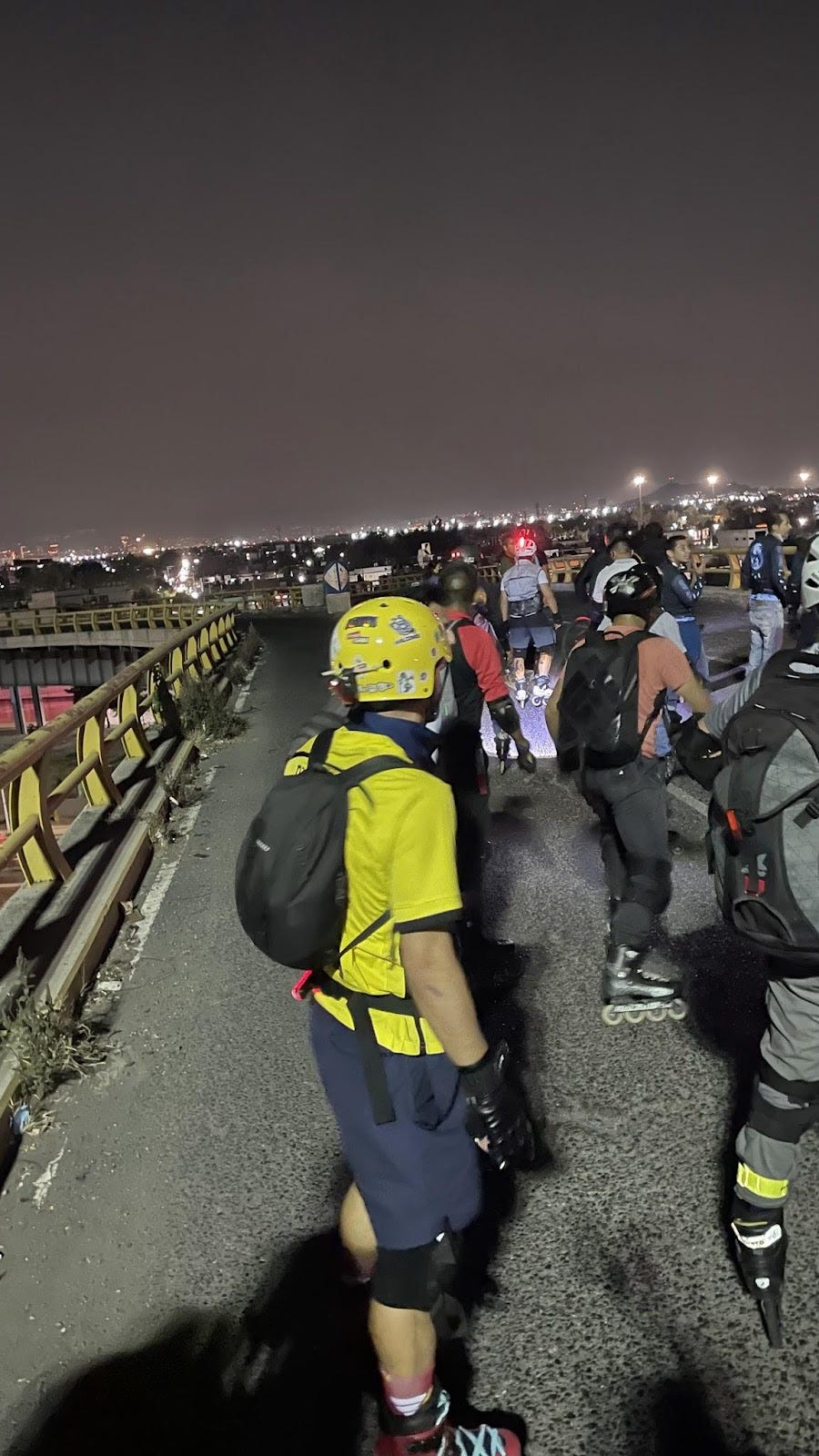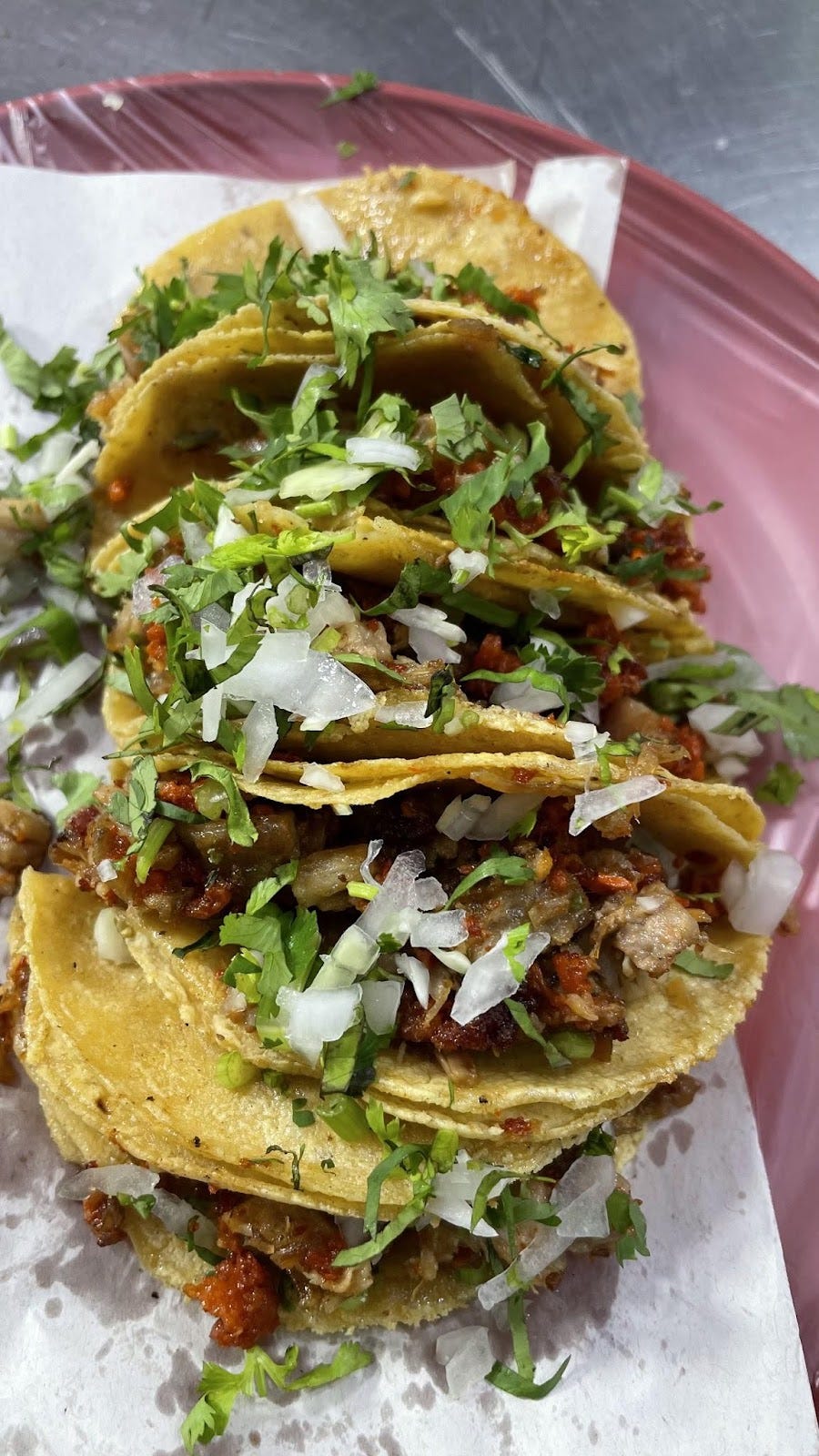Hi Team,
மாலை வணக்கம் (maalai vaNakkam), Buenas Noches, and Good Evening from Oaxaca, Mexico.
I’ll be sharing a thing I did, a tweet I loved, and a thought I had.
A Thing 🎲
Last week, I shared my frustration around my scope exceeding my authority.
Combining that with my firm belief that the only feelings that linger are the ones that we repress or ignore, I brought it up with my manager in our 1-on-1.
He 100% understood where I was coming from.
A younger me might have kept that close to the chest. But now I am acutely aware that I don’t come with an expiration date, so I don’t know when I will pass. So why am I waiting to be truthful with others?
He suggested I “scope down” the roadmap to our division and pitch it directly to the platform team.
He said he’d use his authority as the Chief Architect of HealthTech to get it done at our division level instead of one level higher as we originally planned.
He told me that the right level of scope to operate at is the one where the humans move the quickest. Even though the strategy will benefit all app devs at the company, there’s no use bringing people along who drag their feet. That one level higher management might have a “longer term” strategy in mind to address the problem.
The risk of a “longer term” strategy, something greater than a year, is what will they have to show for this year’s performance review?
I prefer to take a Smedium Bets approach to work. Whatever I am working on better resolve < 6 months. It ensures I get a win before upper management can be cycled out.
That’s why I was so pressed to deliver the HIPAA compliant cloud platform in 5 months.
Small wins snowball into bigger wins.
“Longer term” strategies get gutted as soon as new management is cycled in. I’ve seen this happen more than once. But past performance does not indicate future results.
I just love to pattern match.
A Tweet
I hadn’t heard of the SAGA pattern until 2020.
At my job, we were unwinding a monolithic application into microservices. With this came the redrawing of domain boundaries. And many questions about how to decompose transactions.
I had many architects peers at the time hand waving through, “Should we use the SAGA pattern?”, but provided little specifics.
Recently I came across Bilgin lbryhams’s twitter account and realized he covers in detail the hard parts of designing distributed systems - such as distributed transactions.
It’s much more constructive for me to learn from people who did it than people who read a high level blog post and hand wave about it.
So give him a follow if you want to level up in the hard parts of designing distributed systems.
A Thought
“I woke up in a sweat at 2am and checked your location”
That’s what my cousin, Venky, texted me Thursday morning. On Wednesday afternoon, I was on my way to try Tacos Cabritos when I got hungry. There was a dude selling tacos de canasta, so I figured I’d have an appetizer.
I got my tacos and sat down on the edge of a large pot.
I saw a woman next to me doing the same and I smiled and said, “Buen idea”. She smiled back and responded in an American accent, “Would it be easier if we spoke English?” We chatted for a while and she invited me to a bike ride later.
Her name was Isabel. She took my phone number and said she’d call after work.
I assumed that meant 5 o’clock. No call. 6 o’clock. Nothing. 7 o’clock. Nothing.
I figured she didn’t mean what she said. As a solo traveler, you meet a wide range of people. And in my experience, many are more words than actions.
Finally at 7:30pm I get a call from an unknown Mexico number.
It’s her. She said to meet her where we got tacos and she’d have a bike for me at 8:15pm. I quickly changed and left my place.
When I got there, she and her husband were on roller blades standing next to a bike. He adjusted the seat for my height. We rode to Alemedra Central, a beautiful park in Mexico City.
There’s a group of 30+ people in roller blades ready to roll.
We take off out of the park at a blazing speed. We were taking up all the lanes on the roads. I realize quickly they’re more organized than even the Century Bike Tours I’d paid for in New York.

They had 2-way radios. Whenever someone fell, they had designated first aid people. When we were crossing big roads, they had someone doing traffic control.
I had no idea where we were going. We were ripping through the barrios of Mexico City. By the time we took a break, we were outside the city limits.
“I thought you were getting kidnapped and taken to the airport” -Venky.
We rode for 35 kilometers with stints on the highway. Even cops were helping us do traffic control. And yet, it was the safest I’d ever felt on a bike.
The way this group of people looked after each other reminded me of how I connect with my family and close friends.
They deeply cared about each other’s well-being.
After we got back, they took me to their favorite taco stand. Her husband ordered tacos campechanos, a mix of suadero and longaniza, for all of us. They wouldn’t let me pay.
They wouldn’t even let me pay for the bus back to my apartment.
We’re conditioned to be so skeptical of strangers. We’re conditioned to be fearful of them. But what if we realized that conditioning did more harm than help?
If I’d been fearful like my cousin, I would have missed out on the wildest bike ride of my life.
I’m a strong believer in everything happens exactly the way it’s supposed to.
A few weeks back, I shared a self-limiting belief I have that strangers didn’t want to talk to me.
This experience reinforced for me that strangers love to meet me.
But only if I’ll let them.
I'd love to hear any feelings you felt while reading this and until next time - be easy.
With Love,
Janahan
P.S. Thank you so much for reading the 29th edition of the TTT Newsletter.









Love following your adventures, Janahan! That ride looks unreal, what a huge crew.
I love this passage, it’s something I’ve been thinking a lot about too:
“We’re conditioned to be so skeptical of strangers. We’re conditioned to be fearful of them. But what if we realized that conditioning did more harm than help?”
I remember my first backpacking trip to Europe when I was 20. So many people warned my friends and I to be careful and not talk to strangers. But in the end, most of our best memories were these little exchanges with (former) strangers. 😊